Belief
A Golden Compass ~ by Hafiz
“It is written on the gate of heaven:
Nothing in existence is more powerful than destiny.
And destiny brought you here, to this page,
which is part of your ticket – as all things are –
to return to God.”
~ Hafiz
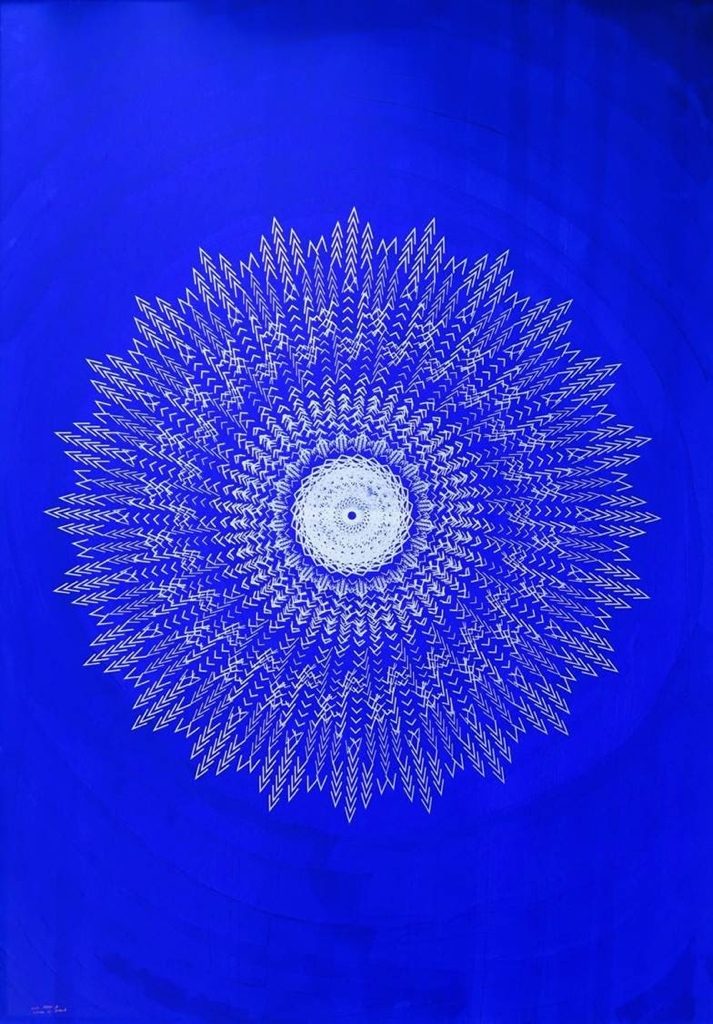
A Golden Compass
~ by Hafiz
Forget every idea of right and wrong any classroom ever taught you
Because an empty heart, a tormented mind, unkindness, jealousy and fear
Are always the testimony you have been completely fooled!
Turn your back on those who would imprison your wondrous spirit
With deceit and lies.
Come, join the honest company of the King’s beggars –
Those gamblers, scoundrels and divine clowns and those astonishing fair courtesans
Who need Divine Love every night.
Come, join the courageous who have no choice but to bet their entire world
That indeed, indeed, God is real.
I will lead you into the circle of the Beloved’s cunning thieves,
Those playful royal rogues, the ones you can trust for true guidance –
Who can aid you in this blessed calamity of life.
Hafiz, look at the Perfect One at the circle’s center:
He spins and whirls like a Golden Compass, beyond all that is rational,
To show this dear world that everything, everything in existence
Does point to God.
~ Hafiz
Translation from: I Heard God Laughing ~ by Daniel James Ladinsky
Video of “A Golden Compass”
Audio: La Illaha Illa Allah – Manish Vyas with voice of Ma Prem Sarasa
A Golden Compass ~ by Hafiz
Ron’s Comment on Poetry of Hafiz (1320-1389)
Though Hafiz lived 700 years ago, he remains the most beloved poet of Persia (Iran). Just as many Western people keep copies of the bible in their homes, many Persian and Iranian ancestry people keep copies of Hafiz’ writings which they consider the pinnacle of Persian wisdom.
To Persians, the poems of Hafiz are not “classical literature” from a remote past, but cherished perennial wisdom from a dear friend. Some consider Hafiz’ writings unique in world literature, with poetry that celebrates every expression of divine love.
Thus, Poet Jason Espada, says:
“The lyrics of Hafiz overflow with a profound appreciation of the beauty and richness of life when seen through the eyes of love. With unerring insight, he explores the feelings and motives associated with every level of love, tracing each nuance of emotion in depth and detail. His poetry outlines the
stages of the mystic’s “path of love” that journey of inner unfolding in which love dissolves personal boundaries and limitations to join larger processes of growth and transformation. Through these processes, human love becomes divine love and the lover merges ultimately with the source and goal of all love, which Hafiz calls the Divine Beloved.”
Because of the nuanced subtlety of Hafiz’ original sublime language, his words can be difficult to translate. But in this English translation, by mystically sensitive interpreter Daniel Ladinsky, Hafiz’ message of Divine Love is powerfully communicated.
Thus, I feel that “A Golden Compass” and the other Hafiz poems and sayings quoted on SillySutras.com are the amongst the most beautiful and deeply insightful postings on the entire website.
So enjoy “A Golden Compass” which communicates how everything in and beyond the perceptible Universe leads to and is God –as LOVE. And while reading the Hafiz verses I recommend that you listen to the above embedded audio of the powerfully sung Sufi remembrance of God prayer: La Illaha Illa Allah.
Thus may we remember that “beyond all that is rational”,
Everything is holy.
All is God,
And only God is “real”.
And so may it be!
Ron Rattner
What is Perfection?
“All people are flawed;
none are perfect.
But the most flawed,
are those who think or claim they’re perfect.”
~ Ron Rattner, Sutra Sayings
“Indeed, there is not a righteous man on earth
who continually does good and who never sins”
~ Ecclesiastes 7:20
“The man with insight enough to admit his limitations
comes nearest to perfection.”
~ Johann Wolfgang Von Goethe
“Were I to await perfection, my book would never be finished.”
~ Chinese Proverb
“Nowadays the world is becoming increasingly materialistic,
and mankind is reaching toward the very zenith of external progress,
driven by an insatiable desire for power and vast possessions.
Yet by this vain striving for perfection in a world where everything is relative, they wander even further away from inward peace and happiness of the mind.”
~ H.H. the Dalai Lama
“Ring the bells that still can ring
Forget your perfect offering.
There is a crack in everything,
That’s how the light gets in.”
~ Leonard Cohen
“This is the very perfection of a man,
to find out his own imperfections.”
~ Saint Augustine
“Advance, and never halt,
for advancing is perfection.”
~ Kahlil Gibran
“Perfection is a state in which things are the way they are,
and are not the way they are not.
As you can see, this universe is perfect.”
~ Werner Erhard, est
“Incarnation is limitation.”
“All is perfection,
but nobody’s perfect.”
~ Ron Rattner, Sutra Sayings
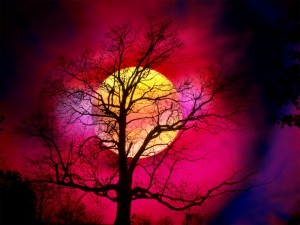
What is Perfection?
Q. What is perfection?
A. “Perfection” is an idea;
a conception in duality reality.
Perfection implies imperfection.
So in relative reality we can’t have perfection without imperfection.
And in Ultimate Reality beyond relative reality,
there is no perfection.
Ultimate Reality is beyond conception,
and so beyond “perfection”.
Q. What is perfection?
A. “Perfection” is an idea;
a conception in duality reality.
Perfection implies imperfection.
So in relative reality we can’t have perfection without imperfection.
And in Ultimate Reality beyond relative reality,
there is no perfection.
Ultimate Reality is beyond conception,
and so beyond “perfection”.
Ron’s Reflections on “What is Perfection?”
Dear Friends,
Have you ever met a ‘perfect’ person? Or perceived or projected “perfection” in this crazy world of ecological, political, and economic crises and constant conflicts? Have you ever considered seeking inner “perfection” as a life goal?
Before my mid-life change of life, I had never reflected on ideas of “perfection”.
But soon thereafter I attended “est”, an impactful self-help seminar where I was first exposed to certain Eastern spirituality principles skillfully collected and experientially presented to help participants radically transform their lives.
The key est teaching was acceptance of the present moment – emotionally accepting “what is” because it could not be otherwise. [See Getting “IT” at est, ] Apt to this teaching was the foregoing “perfection” definition, by est’s founder Werner Erhard:
“Perfection is a state in which things are the way they are,
and are not the way they are not.
As you can see, this universe is perfect.”
Intrigued by est, I began reflecting about “perfection” and sometimes wrote sutras and essays, later posted online. Accordingly, many Silly Sutras postings deal with my evolving reflections on “perfection”. Because these reflections significantly have helped my spiritual opening process, I have shared them hoping they may help others, as they have helped me.
After est, I soon realized that in our phenomenal duality reality “perfection” is an idea, which implies it’s opposite – imperfection; that we can’t have one, without the other. So, a “perfect” person isn’t possible.
Ultimately, I became persuaded by non-duality teachings discouraging “vain striving for perfection in a world where everything is relative” – and impermanent.
But for a while I mistakenly believed that there were exceptions to my conclusion that an infallible “perfect” person isn’t possible.
This happened after I was blessed to meet my beloved venerable Hindu guru, Sri Dhyanyogi Madhusudandas. [ See The Luckiest Day of My Life ~ Meeting My Spiritual Master ] and also met certain other “enlightened” spiritual teachers in the US and India. Whereupon, I became a “born-again Hindu”, and read and recited Eastern scriptures and liturgy glorifying divinity of “gurus” and awakened “buddhas”.
Naively, I thereafter began projecting “perfection” onto Guruji and a few other “enlightened” teachers. But, ultimately, I realized from inner and outer experience that incarnation is limitation, and that however evolved an incarnate being may be s/he is fallible; that here on Earth, where we experience life in apparent physical bodies, human fallibility ‘goes with the territory’ – that “to err is human”.
With that realization, I ceased projecting “perfection” onto individuals and began relying on inner – not outer – authority. No longer a “born-again Hindu” I became, and remain, an “Uncertain Undo” , seeking relief from belief.
My devotional motto became, and remains:
“Adoration of the Infinite; not adulation of the incarnate”.
And I wrote The Law of Flaw, a poem beginning with these verses:
All people are flawed;
none are perfect.
But the most flawed,
are those who think or claim they’re perfect.
In reading the seemingly contradictory above quotes about perfection please remember that in this impermanent world of relativity and duality words often point paradoxically or metaphorically to Eternal truth, which is ineffable. So
“The truest sayings are paradoxical.”
~ Lao Tzu
Whether or not we may agree that “perfection is a state in which things are the way they are, and are not the way they are not”, I hope this perfection definition helps you – as it helped me – find inner peace and happiness by emotionally accepting “what is” NOW, because it could not be otherwise.
But let us remember that emotionally accepting the present moment need not deter us from questioning or nonviolently resisting – like Dr. Martin Luther King, Jr. and Mahatma Gandhi – pervasive suffering and injustice caused by human ignorance and greed, while envisioning our evolutionary transcendence thereof.
And so may it be!
Ron Rattner
Universal Intelligence
~ by Tom Atlee
“The harmony of natural law…reveals an intelligence of such superiority that, compared with it, all the systematic thinking and acting of human beings is an utterly insignificant reflection.”
~ Albert Einstein, The World As I See It
“I believe in Spinoza’s God who reveals Himself in the orderly harmony of what exists, not in a God who concerns Himself with the fates and actions of human beings.”
~ Albert Einstein, Telegram of 1929
“Everyone who is seriously involved in the pursuit of science becomes convinced that a spirit is manifest in the laws of the Universe – a spirit vastly superior to that of man, and one in the face of which we with our modest powers must feel humble. In this way the pursuit of science leads to a religious feeling of a special sort, which is indeed quite different from the religiosity of someone more naive.”
~ Albert Einstein [As quoted in Dukas, Helen and Banesh Hoffman. (1979). Albert Einstein – The Human Side, Princeton University Press.]
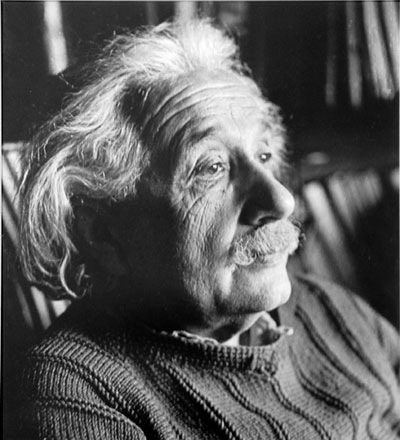
Albert Einstein
Ron’s Introduction
Albert Einstein was not only a great scientist but a wise philosopher and a pragmatic “true mystic” … “of a deeply religious nature.” (New York Times Obituary, April 19, 1955)
Einstein did not believe in a formal, dogmatic religion, but was religiously and reverently awed and humbled with a “cosmic religious feeling” by the immense beauty and eternal mystery of our Universe. He often commented publicly on religious and ethical subjects, and thereby he became widely respected for his moral integrity and mystical wisdom, as well as for his scientific genius.
In a collection of essays entitled The World As I See It, first published 1933, Einstein explained thusly his reverence for God as supreme Intelligence:
“The harmony of natural law…reveals an intelligence of such superiority that, compared with it, all the systematic thinking and acting of human beings is an utterly insignificant reflection.”
~ Albert Einstein, The World As I See It.
In December 2010, I discovered online and republished on SillySutras.com the excellent essay below about Universal Intelligence, believing it to be a verbatim extract from Albert Einstein’s “The World As I See It”, because it began with the above quote.
So I attributed the entire essay to Einstein. But I was mistaken.
Not until December 2016, did I discover that the essay was not written by Einstein, but by Tom Atlee of The Co-Intelligence Institute, a non-profit organization, which had published the Universal Intelligence essay commencing with the foregoing Einstein quotation at http://www.co-intelligence.org/Universal_Intelligence.html .
Since the essay is inspired by and harmoniously consistent with Einstein’s views, I am continuing to republish it with corrected attribution, and with sincere apologies to Tom Atlee and any prior visitors to the Silly Sutras website who may have been misled by my mistaken attribution.
Universal Intelligence
by Tom Atlee
“There is something about the universe — an elegant order in the way everything fits and unfolds, an inexplicable beauty in its living patterns, and the mysterious depth and expressiveness of it all — that reminds us of the brilliance we see in the works of great artists, scientists, engineers, and saints.
Some people believe that human intelligence is the pinnacle of natural evolution and can outdo anything nature has to offer — and that there is no God, and that nature has nothing remotely resembling consciousness or intelligence. Others say that nature’s (or God’s) brilliance is greater than any human intelligence — ultimately awesome in its scope and endlessly surprising in its details — and that human intelligence is a small but elegant expression of this larger intelligence and has much to learn from it.
More often than not, I find myself in this latter group — those who sense some kind(s) of universal intelligence. To some degree, this is a matter of faith. To some degree, it seems that the evidence surrounds us. For those of us who see things this way, I suspect it honors universal intelligence more if we contemplate it, share our sense of it, and tap into it rather than argue about it with others who see things differently. In any case, this article describes how I see it.
Christians see a higher intelligence they call God’s plan, or the will of God. Taoists see a higher intelligence they call the Tao, the Way of Nature. Meditative traditions speak of cosmic consciousness. Most indigenous peoples consider all of nature to be intelligent and alive. Scientists speak of natural laws — and some are now researching what they call complex, adaptive systems — systems that respond to the world around them, in ways that look a lot like learning. The whole process of evolution is clearly a learning process, a developing of new variations that work better, or work in new environments. Some people see evolution as the dynamic unfolding Great Story of the Living Universe and consciously celebrate and learn from it.
I bundle all these phenomena into one package and label it “universal intelligence.”
When I’m feeling esoteric, I might describe it something like this:
We live in a sea of information, a web of interconnection, a field of what some Buddhists call inter-being — a dynamic state of interactive, resonant existential communion. There are universal patterns, powers and wisdom at the core of our being, and the universe vibrates with our every act and thought. What happens in one place and time is linked to everything else far more intimately than we could ever imagine. Synchronicities and analogs abound. Certain patterns keep cropping up: We see BRANCHES in trees, rivers, roads, fields of study, computer circuitry. We see CYCLES in planets, electrons, food chains, wheels, the flows of water and carbon through the biosphere, and the recycling bin. It is no accident that we use the word VISION to describe perception, imagination, insight and prediction. Patterns like these (branches, cycles, vision, etc.) are alive with useful meaning. At every level, the universe is rich with lessons and resonances as it in-forms itself, intimately co-being and co-evolving, learning and remembering. Intelligence is everywhere. There is information and wisdom here we can tap into. There are flows and textures and energies, resistences and assistances, that we can join and follow, or grow stronger and wiser wrestling with.
Among those who see such intelligence operating in the world around us, there is endless speculation about its nature. Is universal intelligence built into nature by a human-like Creator and then left to unfold — or a sign of a Creator’s continual, contemporary engagement in creation? Are the natural patterns that we think of as intelligent merely analogs of our own intelligence, or are they somehow the same thing, writ large? Are we anthropomorphically projecting our experience of consciousness into the dumb matter of the world, or is our own intelligent consciousness somehow an expression or facet of some larger intelligent consciousness? Are we dreaming God, or is God dreaming us? I, myself, entertain several seemingly contradictory beliefs at once about all this, and keep it all balanced with a generous ballast of “maybes.”
For my purposes here, though, we don’t have to agree on the nature of universal intelligence. Despite all the disagreements about that, few will disagree that there is something ultimately mysterious and creative about the order of the universe. Even top scientists who see nothing “spiritual” in the world around them agree on that. At the very least, the word “intelligence” provides an excellent metaphor to describe that reality. So for now let us not argue over the exact nature of this thing I call universal intelligence. Rather, let us explore our relationship to it.
In the explorations that follow, I simply assume that there is an order that is larger than us, which has its own logic and direction which we are not in charge of. If this is true, then working against this higher power will demand more effort than working with it, and will generate little, if anything, of lasting value except learning — which is always available — and sometimes catastrophe. This would suggest that we subjugate ourselves to this higher intelligence. However, experience suggests that we can, to a certain degree and with great caution, manipulate this higher intelligence for our own ends — which we do through science and engineering by applying natural laws and through religion by praying. But natural order is complex beyond our capacity to know fully, and if our manipulations are at all arrogant — presumptuous that we know what we’re doing — we will likely end up creating a mess like the Sorcerer’s Apprentice. A third — and, to me, more satisfactory — strategy than total submission or manipulation is to respect, befriend, cooperate with and creatively move in harmony with this infinitely powerful and complex intelligence, to the best of our ability.
Humility is, naturally, an excellent place to begin in our efforts to cooperate with universal intelligence. Humility in this case simply means an honest appreciation of our own limitations and a real respect for the ancient and awesome wisdom of the greater intelligence(s) in which we’re embedded. Humility means starting from a place without arrogance, with flexible certainties, a place of respect, curiosity, wonder and willingness to learn — in every situation we can manage it.
“Letting go” is another part of cooperating with universal intelligence — being unattached to outcome, realizing we’re not in control. Not being in control doesn’t mean that we don’t have a significant role. Indeed, our influence is part of what shapes the unfolding of whatever happens next. But that is influence, and not control — sometimes more, sometimes less, and always participatory, not unilateral. (This also means leaving behind blame and shame and reconceptualizing responsibility as our [or another’s] actual role in events in which all of us have roles. Taking responsibility for the past would mean consciously acknowledging that what we did — whatever we did — played a role in what happened. Taking responsibility for the future would mean consciously choosing a role and playing it out as best we can, knowing that we are only one of many players.)
In what I experience as my best times, I feel more like a conduit for a larger, all-inclusive intelligence, or like my life is an active part of something larger that is trying to happen. When I’m in that state of awareness, there is a sense of being guided. It isn’t so much that I’m told what to do in so many words (although that has happened occasionally, too), but rather that I can feel when I’m “on track” or “off track.” It is a gut feeling that what I’m doing is the right thing (or not) at this time. Often it is more than a feeling of “being in the flow,” but an apparently objective fact. Ideas, resources, opportunities, and other openings inexplicably appear in ways that facilitate rapid progress in a particular direction — as if someone or something were clearing the way for me.
But sometimes “the way opens” (as the Quakers say) in directions that seem to me wrong. So I end up having to make judgments and choices anyway. How do I know that this impulse is aligned to universal intelligence while that other one is not? I’m not even sure we can talk about universal intelligence as something we can “know.”
So I certainly don’t believe that any of us can legitimately claim to know what its marching orders are, even if we wanted to follow its dictates. I see our challenge as more complex. In the spirit of co-intelligence — as noted above — I prefer to view what seem to be the patterns and promptings of universal intelligence not as something to submit to or manipulate, but as something to join in partnership with, in a sort of dance, as one would with a good friend or lover or comrade. We influence each other. My intentions have a role in shaping The Plan, and my actions have a role in realizing The Plan, but I never know exactly what The Plan is, although I often think I sense its patterns in my life and in the life of the world around me. I open myself to universal intelligence, and let my inevitably limited perception of it inform — but not control — my reason, my passion, my intuition, my action.
One part of that Plan — that intelligence — is crystal clear: Universal intelligence is definitely concerned with more than me. It is concerned with the operation and well-being of the Whole — a Whole so large I can’t fathom it. So opening myself to universal intelligence automatically influences me to keep my intentions for myself in perspective. And from that perspective, I know that when I try to benefit myself at the expense of someone or something else, it’s not going to work out as neatly as I think, because the Plan simply doesn’t operate that way. On the other hand, the closer I get to benefiting The Whole, the more aligned I become with the operations of universal intelligence.
And, since I can’t know The Whole, that translates into doing the best I can while giving universal intelligence lots of space to do what it does. In fact, I can become an ally with universal intelligence by providing contexts in which things can co-creatively self-organize, rather than forcing them into pre-determined outcomes. That doesn’t mean just standing back (although that’s often what’s called for); it means going with the grain of life, not against it. This can be quite active, like helping children learn what they really want to learn instead of forcing them to learn what they’re not interested in (or neglecting them) — or creating an open space conference where all the issues hidden inside the participants can emerge and get dealt with, rather than organizing a conference where experts tell people what to think. This is working with universal intelligence, giving universal intelligence the space it needs to do its thing through whatever aliveness is present.”
Source
http://www.co-intelligence.org/Universal_Intelligence.html
Choosing Happiness: No Arms No Legs No Worries
“The greatest discovery of any generation
is that human beings can alter their lives
by altering the attitudes of their minds.”
~ Albert Schweitzer
“Though we may not be free to choose our outer circumstances in life,
we are always free to choose our attitude and thoughts about those circumstances.”
~ Ron Rattner, Sutra Sayings
It’s not our longitude
Or our latitude,
But the elevation of our attitude,
That brings beatitude.
***
So an attitude of gratitude
Brings beatitude.
~ Ron Rattner, Sutra Sayings
“Gratitude is not only the greatest of virtues,
but the parent of all others.”
~ Cicero

Nick Vujicic is an inspiring Australian motivational speaker and Christian evangelist who was born without arms or legs. As a child, he struggled mentally and emotionally as well as physically. But eventually, with perseverance and faith in God, Nick discovered that his state of mind determined his happiness, and that we choose our state of mind.
Thereby he learned to gratefully accept his life just as it is.
He teaches his crucial insights not only with his words but mostly by his life example. Though he can’t walk physically, he metaphorically walks his talk.
Here is a powerfully inspiring four minute video in which Nick both articulates and demonstrates his fundamental teaching – that an attitude of accepting our life with faith and gratitude brings happiness.
https://www.youtube.com/watch?v=SjbX6mDnMwM
Nick Vujicik ~ No Arms No Legs No Worries
Human Fallibility and Divine “Perfection” ~ Ron’s Memoirs
“Follow your heart, even if it contradicts my words”
~ Sri Dhyanyogi Madhusudandas
“Do not believe in anything simply because you have heard it. Do not believe in anything simply because it is spoken and rumored by many. Do not believe in anything simply because it is found written in your religious books. Do not believe in anything merely on the authority of your teachers and elders. Do not believe in traditions because they have been handed down for many generations.
But after observation and analysis, when you find that anything agrees with reason and is conducive to the good and benefit of one and all, then accept it and live up to it.”
~ Buddha
“All is Perfection,
but nobody’s perfect.”
~ Ron Rattner, Sutra Sayings
“Incarnation is limitation.”
~ Ron Rattner, Sutra Sayings
“All people are flawed;
None are perfect.
But the most flawed,
Are those who claim or think they’re perfect.”
~ Ron Rattner, Sutra Sayings
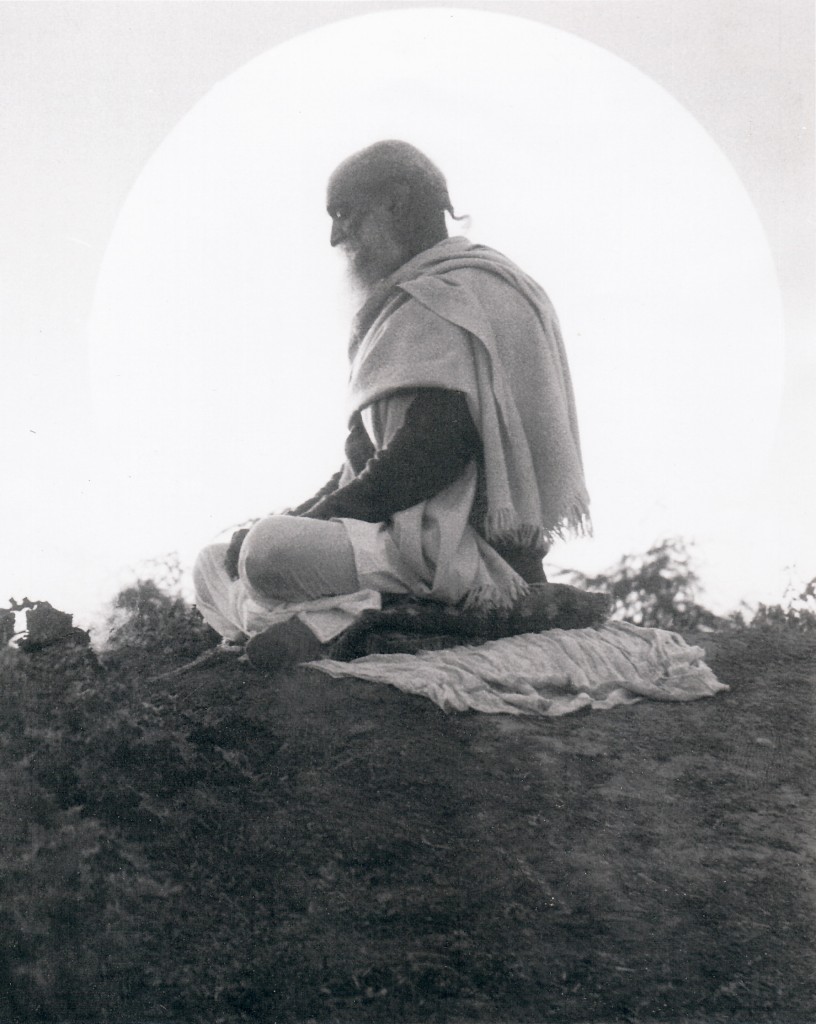
Shri Dhyanyogi Madhusudandas
Many of us have faith in an omnipresent and omniscient Divine Perfection which is beyond comprehension, imagination or description. And, knowingly or unknowingly, we seek such Perfection here on Earth. But in our phenomenal duality reality “perfection” is an idea, which implies it’s opposite – imperfection. We can’t have one, without the other. So, a “perfect” person isn’t possible.
[see, e.g. https://sillysutras.com/is-personal-perfection-possible/ ]
Some of us may be blessed to meet inspiring spiritual teachers, gurus or saintly people on whom we may project and, accordingly, in whom we may perceive perfection. I have done this with my beloved and venerable Hindu guru, Sri Dhyanyogi Madhusudandas, and with a few other “enlightened” spiritual teachers. But, ultimately, I have learned from inner and outer experience that incarnation is limitation, and that however evolved an incarnate being may be s/he is fallible. Here on Earth, where we experience life via physical bodies, it seems that human fallibility ‘goes with the territory’ – that “to err is human”.
Once while my friend Joy Massa was walking in the woods with our beloved Guruji, Dhyanyogi, he advised Joy:
“Follow your heart, even if it contradicts my words”.
This teaching was exceptionally noteworthy in view of the ancient Hindu tradition of complete surrender to the Guru. So I have reflected much about Guruji’s extraordinary message to Joy. And I have particularly wondered why Guruji did not directly give that profound teaching to most other disciples – including Ron.
I believe that when Guruji gave us personal teachings, they were appropriate to our particular state of evolution and to our unique karmic constraints. Thus, Guruji was especially encouraging Joy – an exceptionally intellectual person – to honor her ‘inner’ Guru’ over her intellect or outer authorities. Joy already was quite skeptical of outer religious authority and e.g. had rejected certain Catholic Church dogma, such as Papal infallibility.
Moreover, it appears that despite Guruji’s highly elevated state of evolution and extraordinary powers, he was acknowledging to Joy – with rare saintly humility – even his own earthly limitations.
In my experience, while living in this ever changing world, we need to rely vigilantly both on our powers of discrimination and on our divine intuitive insights. But, that whenever in doubt, it is wise for us to to honor intuition over intellect, and to find guidance in our heart – not our head; and, that we must still our mind so as to hear our heart, instead of listening to the ‘voice in our head’. Accessing our inner wisdom helps transcend many earthly limitations and to solve problems created by lower levels of human consciousness.
Here is an apt and insightful essay by spiritual author and teacher Andreas Mamet, entitled “The Braid”. *[see footnote]
The Braid
by Andreas Mamet
Our quest for spiritual empowerment has at its core the association with those who we believe can assist us in our endeavors by virtue of their accomplishments. For this reason, we seek out teachers and gurus.
When we imagine how an accomplished teacher might look like or behave, we draw many inferences from our Judeo-Christian belief system, which describes God as perfect and infallible. We conclude that a person who experiences nearness to God, or even full God-Realization, is infallible. We believe that such a person is perfect in making decisions and can do no wrong. This is what I believed three decades ago, at the beginning of my spiritual journey. Now, almost 30 years later, after much observation, I have come to think otherwise. Mistakes do not stop after an individual becomes God-Realized or finds her/himself emanating more and more Divine Light. Errors of judgment remain a possibility. This was one of the more surprising realizations for me, as I believed in the myth of infallibility.
This myth is promoted often by the priest archetype, the “god professional,” in as much the following illusion is projected: God is infallible. I am close to God. Thus, I am infallible, and you need to do exactly as I say. This defines very much the traditional guru-disciple relationship of olden days, reaching into our present. It is, however, to be noted that recent decades have shown many instances wherein gurus have imploded their structures by making decisions that, in the end, displayed poor judgment and created havoc. This left their disciples spinning, forced to wonder what happened here and come to their own conclusions or responses.
One response was that the guru or teacher is so enlightened that he merely gave this experience to us as lesson to learn. That is the “denial response,” seeking to uphold the illusion of the infallible master, justifying the continuing, uncritical association of the individual with the guru arechetype. The stance of total devotion and surrender is maintained.
There is a story that deals with the theme of total surrender as is often asked of the disciple archetype. Gurdjieff, a spiritual teacher at the beginning of the twentieth century, was on a trip by car. At one point the lights stopped working, and Gurdijieff asked his disciple to sit on the hood of the car and hold a flashlight. The disciple was about to climb up to do as asked when Gurdjieff stopped him, asking, “Does it not occur to you that this is a completely idiotic request?”
Yes, there are beings who are very close to the Divine. They emanate qualities that are breathtaking. When you come into their company, powerful experiences take place instantly. It is those experiences that lead us to assume the teacher is perfect, a satguru. This assumption is an illusion. Yes, enlightenrnent may be there. But infallibility is not.
This puts the entire concept of unconditional surrender out of commission. It places upon us the need for total responsibility and minute-to-minute alertness. We are to wake up from the sleep that lets somebody else tell us what to do and how to act. Every second, we are required to display intelligent wisdom, discernment, and accept or reject what is placed before us on the grounds of this discernment. Had the Gurdjieff disciple displayed this (hard-to-attain) ability, he would have told Gurdjieff, “No.”
But, to reject the action of a being we feel is God-Realized or God-Near is a most difficult thing. We are prepared to sacrifice our common sense and intelligent discernment for an act of idiocy if we believe that God is merely testing us. To reject a Buddha is most difficult. “When you meet the Buddha on the road, kill him!” The Buddha himself said that. What does this mean? It means that after a thorough and deep relationship with an awakened being, the attachment is so huge, it becomes an obstacle in the disciple’s process of liberation.
This is the image that I have created for myself to understand what happens in the arising of God-Nearness: It is like a braid. You take one strand of hair and braid it with another strand of hair. The strands become completely intertwined, utterly close … one section, the human; the next, the Divine.
This, to me, represents the reality of things. Hence, the entire system of Asian teachers, Tibetan lamas, and others based on surrendering to a “high consciousness” are promoting an illusion. I feel we have entered an era wherein this illusion will be revealed. The fact of the remaining humanness of the one who experiences God-Nearness will become more evident, and the old, traditional system of unconditional surrender will be recognized as inappropriate. It will gradually disappear.
This creates a problem of different kind. It remains a fact that there are those who, on the grounds of superior and long-established practice, have indeed generated a God-Nearness that supersedes our own. This simply has to be admitted and acknowledged. Respect is due where respect is due. It should be expressed. When a transmission of light and wisdom is given, respect and gratitude are to be given in return.
But we should be able to turn on a dime. The second a teaching or request is expressed that is inappropriate or simply painfully outdated (women on the left, men on the right, old patriarchal illusions and power structures promoted), it should be challenged on the spot. In this way, old traditions that simultaneously carry blessings and ignorance are stimulated by infusions of needed reform. Teachers who carry blessings and unreflected garbage of olden days are given food for thought. If these infusions are not accepted, considered to be sacrilegious gestures, then we should be willing to turn on our heels and walk.
In the end, the Divine Experience will come to us on the grounds of our longing for it. That is the basis. The longing for the Divine will fill our body with the experience of the Divine. Translate your longing into fervent, ceaseless practice. Call the Divine until the Divine is tired of hearing your voice and descends into your body completely to get rid of your crying.
* Andreas Mamet’s other writings can found on his blog and Facebook pages.
Ron’s Conclusion
Ultimate Truth is Mystery – unimaginable and intellectually inexpressible.
But, highest wisdom pointing us to that Mystery, is implicit in Shri Dhyanyogi’s precious teaching “Follow your heart, even if it contradicts my words”; it guides us to “Seek first the kingdom of heaven, which is within.” ~ Matthew 6:33; Luke 17:20-21
Heeding that wisdom, may each of us look within and ultimately be guided by our divine intuition – our sacred Heart, rather than by fallible ‘outer authorities’.
And so shall it be!
Be an Open Skeptic
“Do not believe in anything simply because you have heard it.
Do not believe in anything simply because it is spoken and rumored by many.
Do not believe in anything simply because it is found written in your religious books.
Do not believe in anything merely on the authority of your teachers and elders.
Do not believe in traditions because they have been handed down for many generations.
But after observation and analysis, when you find that anything agrees with reason and is conducive to the good and benefit of one and all,
then accept it and live up to it.”
~ Buddha
“The way is not in the sky. The way is in the heart.”
~ Buddha
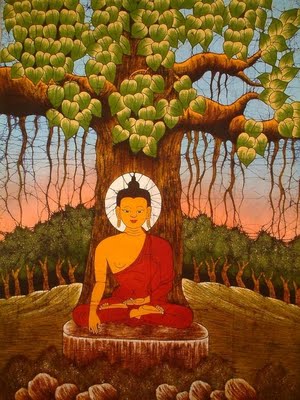
Be an Open Skeptic
Be a skeptic.
Doubt dogma.
Question the unquestionable.
Contest “common wisdom”.
Hear the heretic, whose words are prophetic.
Be ever open, to receiving uncommon wisdom –
From your Heart!
Ron’s audio recitation of Be an Open Skeptic
Discovering That All is ‘Perfection’– Another Bay Bridge “Miracle”
~ Ron’s Memoirs
“Whatever we think, do, or say,
changes this world in some way.”
~ Ron Rattner, Sutra Sayings

SF-Oakland Bay Bridge © ChristianSchd
Upon learning from Guruji about the spiritual goal of “self realization” or “enlightenment”, I decided to “seek” this goal by meditating and reciting his prescribed Sanskrit prayers and mantras. But after several years, I lost interest in pursuing “enlightenment” though I continued Guruji’s practices and attended his group meditations. Also, I continued reading many spiritual teachings of other masters, scriptures, and stories about saints (hagiographies).
Though ever inspired by Guruji’s “signs and wonders” which I had witnessed and experienced, and those attributed to saints and spiritual masters about whom I was reading, I found that my desire to personally experience these “miracles” was waning. I began realizing that these powers could become pitfalls – big ego traps impeding rather than promoting spiritual evolution.
Before meeting Guruji, I had begun entertaining egoistic ideas that I might be “special” because of all the miraculous things that were happening to me. Thus, I was egoistically forgetting the unforgettable rebirth realization that started the whole purification process – the simple insight that: “I am not my body or its thoughts, but pure awareness; I am not my role in life – lawyer, husband, father – with which I’ve identified, but pure awareness.”
But, after shakipat, as I began reading and reflecting about “enlightenment”, I became increasingly aware that “ego” and “enlightenment” could not co-exist; that anyone who egoistically thinks s/he’s ‘special’ isn’t “enlightened”. So, rhetorically I wondered: “If I am just pure Awareness, not separate from ultimate Reality, how can I be a ‘special’ person?”
My first memorable test of that crucial ‘re-realization’ insight soon came during a meditation retreat with Guruji near Santa Cruz where with extraordinary benevolence he imparted esoteric information to advanced initiates. And amongst these esoteric teachings were instructions about how to travel astrally at will.
By this time I had had spontaneously experienced various OOB’s, including my amazing New York astral projection into the future, and had experienced Guruji’s power to “visit” me in his astral body. Also I was aware of Robert A. Monroe’s teachings and writings about his “Journeys Out of the Body”.
But even though Guruji sanctioned certain initiates to acquire the extraordinary power of traveling astrally at will, I clearly wasn’t interested in it. So I chose not to practice or pursue astral projection.
I was content to let the Universe decide when and whether I would be shown or given any more such “signs and wonders”. And I didn’t have long to wait before it happened again. As I was driving home from that Santa Cruz retreat in my then ‘trusty’ Volvo, I had one of my most extraordinary and memorable OOB experiences.
I left the retreat accompanied by Saskia, the Dutch doctor and acupuncturist who had been one of my passengers during our miraculous ‘sight seeing tour’ with Guruji, which began with our toll-free passage onto the Bay Bridge. She lived in Berkeley, and I was taking her home before returning to San Francisco.
As we drove from Santa Cruz to Berkeley, Saskia and I chatted about spiritual and worldly subjects, including our apparent lack of good fortune at not yet finding worldly “soul mates”. Within minutes after we parted, I was synchronistically granted an unforgettable graphic apparent answer to our question about supposed “lack of good fortune” in certain worldly relationships.
A few minutes after dropping off Saskia, I drove the Volvo onto the Bay Bridge en route to San Francisco. Soon after passing the toll plaza, I was suddenly and unexpectedly taken out of my body. While my physical body continued guiding the Volvo across the Bay Bridge, I was given a fleeting – but amazingly unforgettable – Buddha’s eye view of space/time and causation from a very subtle causal plane of awareness.
From this subtle panoramic perspective – far above and beyond Ron Rattner’s dense physical body, driving its denser (but blessed) Volvo – I was shown an interwoven causal tapestry that is manifesting this phenomenal “reality”; that everything – every form and phenomenon – is perfectly karmically/causally connected; and, that whatever happens to us in this world arises from interdependent, interconnected, and interrelated causes.
Ever since that pivotal experience I have reflected on ideas like “perfection”, “causation”, “synchronicity”, “free will versus determinism”. And while so reflecting, I have written (and have posted on SillySutras.com) many apt sutras, like this one:
Perfect Paradox
Despite Omni-present ignorance,
selfishness, misery and suffering,
and apparent chaotic uncertainty,
perfection pervades our “Loco Loka” * –
the realm of space/time and causation;
the realm of manifest Mystery.
*”Loco Loka” = crazy world
Over thirty years have now passed since that amazing view of “reality” was bestowed. Thanks to that ‘miraculous’ experience, and to countless ensuing ‘miracles’ in my enfolding life story, my life has evolved – in ways which were once unimaginable – to a state of abiding “inner peace and happiness” beyond “any belief or religious affiliation”, just as promised by Guruji in 1978. Thus, with heartfelt gratitude, I’ve Found A Faith-Based Life.
So, without any religious affiliation,
I’ve become a faithful follower:
I follow my Faith;
I follow the Way;
I follow my Heart.
And this above all,
It is my Faith that enables me to be true to my Self.
Transcending Transcendence?
~ Ron’s Memoirs
“The goal is not to lose oneself in the Divine Consciousness.
The goal is to let the Divine Consciousness
penetrate into Matter and transform it.”
~ Sri Aurobindo – The Mother 15: p.191
“Cosmic consciousness is
infinite evolutionary impetus in each of us.”
~ Ron Rattner, Sutra Sayings
“As we experience our universality,
we transform our reality.”
~ Ron Rattner, Sutra Sayings
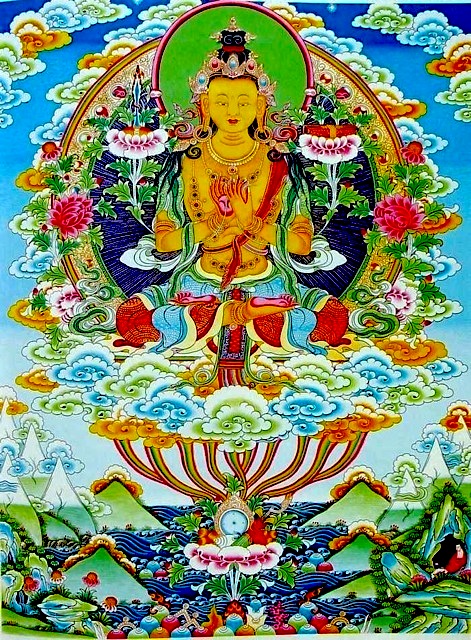
Maitreya Bodhisattva
Transcending Transcendence
My miraculous “sight seeing” trip with Dhyanyogi, and subsequent experiences, inspired ever increasing faith in his saintly good will and yogic powers. But questions arose for me about his Hindu path.
In writings introducing his path to Americans, Guruji said that Kundalini Maha Yoga was not a religion but a spiritual practice bringing “lasting inner peace and happiness to individuals of any belief or religious affiliation.” But his prescribed spiritual practices mostly included Sanskrit prayers and mantras associated with Hinduism, in addition to daily meditations.
At first I was uncomfortable reciting Sanskrit prayers and mantras which I didn’t understand, except for the Ram mantra with which I have always felt deep affinity. But intuitively I relied on Guruji’s extraordinary being and benevolence, and on his assurances that initiates would enjoy “a happy life”. So gradually I became more and more engaged in these practices, trusting that they would help me live a happy life.
Then, during a public meditation program, Guruji said these sanskrit practices would lead us to “the spiritual goal”. And I wondered: “what spiritual goal?” Amazingly, though I was still then an ‘uptight’ skeptical lawyer, I had taken an initiation from an unknown Hindu guru and was repeating his esoteric Sanskrit prayers and mantras not knowing what they meant or that their purpose was to achieve some “spiritual goal”.
So, after the meditation program, I asked others about this “spiritual goal”. I was told that the object of Hindu practices was to achieve “mukti” or “moksha” or “self-realization”; that the kundalini purification process, viz. the “evolutionary process taking place in [my] nervous system”, would some day in some lifetime lead to a state of Divine illumination where the Self, soul, or “Atman” would experience its Oneness with “Brahman” [Supreme Reality] – the pinnacle of human experience. Only then did I begin considering these ideas of “self realization”.
Though Guruji’s assurance of our finding lasting peace and happiness was appealing, I hadn’t consciously been drawn to him by this assurance but by a deep intuitive heartfelt connection. Before meeting Guruji I was not ‘goal oriented’. Instinctively hesitant to pursue materialistic societal goals, I was mostly inner – not outer – directed. But never before had I considered any inner ‘goals’.
In the late 1950’s I had been deeply influenced on reading “The Sane Society” by then prominent psychotherapist Erich Fromm, about the pathology of ‘normalcy’ in our materialistic society. Fromm suggested that Western society as a whole was lacking in sanity; that the inequities and disharmonies of the entire society were pathological, not just the mental illnesses of people therein. Fromm’s essay had confirmed and enhanced my instinctive reluctance to selfishly follow materialistic societal goals.
So, in becoming a lawyer and throughout my professional career, my main motivation was to help others; it was not to become rich or famous. Long before my spiritual awakening, I had a deep inner instinct to pursue social justice causes, with considerable sensitivity to the “insanity and iniquity of inequity in our society”.
But, with the Yosemite inner experience of “ten thousand suns” I realized that beyond my instinct for social justice was an extraordinarily intense longing for the Divine – to return from this crazy world back to God, back to Ram. However, not until hearing Dhyanyogi’s teachings about a spiritual “goal”, did I consider pro-actively seeking such an inner goal.
Though initially it seemed desirable to aspire to “self realization” or “enlightenment”, I was unable to relate experientially to those illumined states as ascribed to rare beings like Gautama Buddha. So, I was never clear about what to “seek” until, ultimately, I stopped seeking it, whatever it was.
After considerable reflection, I abandoned goal oriented spiritual seeking, and intuitively began with more and more heartfelt faith to surrender to the Infinite – “to let go, and go with the flow” – and to “leave it to the Lone Arranger.” * Perhaps, I transcended transcendence aspirations.
Inspired by the Buddhist Bodhisattva ideal of altruistically helping all beings end their sufferings, I stopped trying to be beyond this world, but rather to be in it in a way which might help all life everywhere. And I ceased regarding “enlightenment” as a “goal” but rather as an endless evolutionary process.
Experientially, I had realized that ‘the Kingdom of Heaven’, Buddha nature, and Love, were the Essence of everything in our phenomenal “reality”. And my core spiritual motivation became and remains:
“Infuse us, enthuse us, and use us, to bless all Life as LOVE.”
But paradoxically I have learned from experience that we cannot change others, only ourselves; that by furthering our own evolution we help elevate humanity’s common consciousness and thereby subtly help others. So, I consider it my responsibility to aspire to be the change I wish to see in the world, with the intention and dedication of so helping everyone everywhere.
And in this process, as Guruji promised, with unspeakable gratitude I am now enjoying “a happy life” beyond anything that I could have imagined when I received a shaktipat initiation in 1978.
*Footnote
Many ideas about “enlightenment” are in articles posted elsewhere on SillySutras.com. E.g. see https://sillysutras.com/?p=2925 and https://sillysutras.com/?p=1180
A Brain Scientist’s ‘No Brainer’ NDE
“The brain does not create consciousness,
but consciousness created the brain,
the most complex physical form on earth, for its expression.”
~ Eckhart Tolle
I regard consciousness as fundamental.
I regard matter as derivative from consciousness.
We cannot get behind consciousness.
Everything that we talk about, everything that we regard as existing,
postulates consciousness.
~ Max Planck, Nobel laureate physicist, as quoted in The Observer (25 January 1931)
“The very study of the physical world leads to the conclusion that
consciousness is an ultimate reality and,
all the possible knowledge, concerning objects
can be given as its wave function”
~ Eugene Wigner, Nobel laureate physicist and co-founder of quantum mechanics
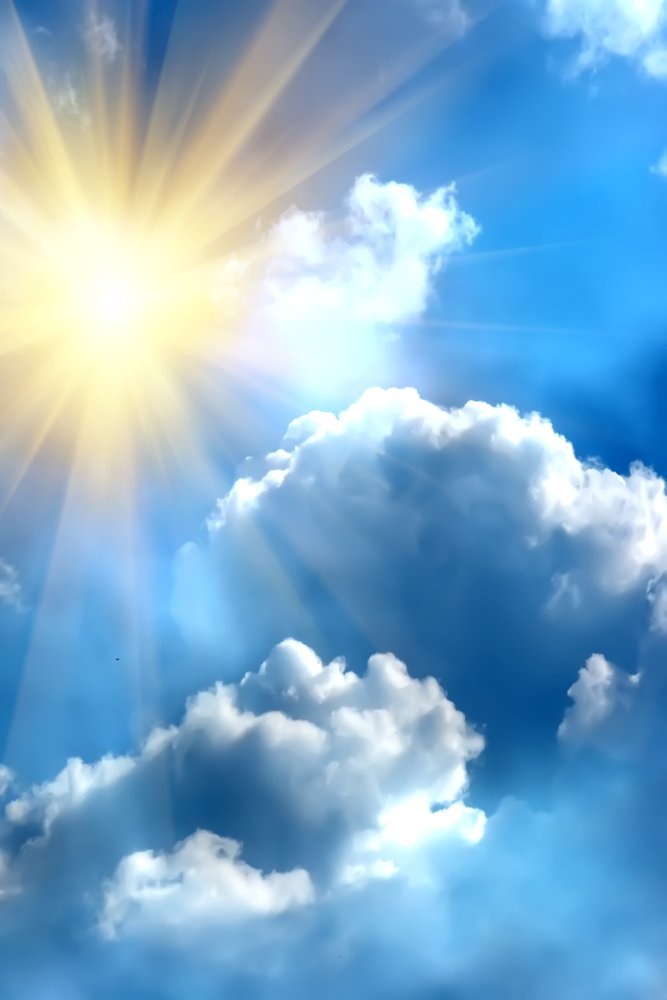
Introduction.
For millennia mystics and seers have realized experientially that our space/time/causality reality is but a play of consciousness; that all impermanent appearances, all apparent forms and phenomena – including human brains – are but holographic projections of timeless Universal Awareness.
But very few scientists have shared this revelatory mystical world view. Most scientists do not regard as “real” that which is beyond perception and conception.
Rather than recognizing consciousness as the ultimate and eternal Source of our reality, reductionistic and materialistic mainstream science says that brains generate consciousness, and that we see via our brains.
However, there have been innumerable published reports of near death and out of body experiences and other mystical experiences which contradict this mainstream brain hypothesis. (*See footnote re Near Death Experiences [NDE’s].) Nonetheless, until now most brain scientists have dismissed these reports as untrustworthy “anecdotal” evidence. Rarely have mainstream brain scientists transcended their mistaken materialistic paradigm. But there have been noteworthy exceptions. (see e.g. Atlantic Monthly: The Science of Near-Death Experiences.)
Dr. Eben Alexander
Thus, in October 2012 Dr. Eben Alexander, a neurosurgeon who has taught at Harvard Medical School, went public with an autobiographical account of a life changing dramatic and vivid near death experience (NDE) of what he called “heaven” while he was in a week-long comatose state with a non-functional brain neocortex. (His best-selling first book, ”Proof of Heaven”, was published by Simon and Schuster on October 23, 2012.)
Dr. Alexander reported being told in “heaven”:
“‘You have nothing to fear. There is nothing you can do wrong.’ The message flooded me with a vast and crazy sensation of relief.”
He has written that prior to his NDE he did not believe in such experiences, and ‘scientifically’ dismissed them.
“As a neurosurgeon, I did not believe in the phenomenon of near-death experiences. I grew up in a scientific world, the son of a neurosurgeon. I followed my father’s path and became an academic neurosurgeon, teaching at Harvard Medical School and other universities. I understand what happens to the brain when people are near death, and I had always believed there were good scientific explanations for the heavenly out-of-body journeys described by those who narrowly escaped death.”
“According to current medical understanding of the brain and mind, there is absolutely no way that I could have experienced even a dim and limited consciousness during my time in the coma, much less the hyper-vivid and completely coherent odyssey I underwent.”
“There is no scientific explanation for the fact that while my body lay in coma, my mind—my conscious, inner self—was alive and well. While the neurons of my cortex were stunned to complete inactivity by the bacteria that had attacked them, my brain-free consciousness journeyed to another, larger dimension of the universe: a dimension I’d never dreamed existed and which the old, pre-coma me would have been more than happy to explain was a simple impossibility.”
Raised as a Christian, Dr. Alexander used the religious concepts of “God” and “heaven”, to describe his extraordinary experience.
“Communicating with God is the most extraordinary experience imaginable, yet at the same time it’s the most natural one of all, because God is present in us at all times. Omniscient, omnipotent, personal-and loving us without conditions. We are connected as One through our divine link with God.”
Apart from referring to God, he also identified unconditional Love as the the ultimate Reality and “basis of everything” that exists.
“Love is, without a doubt, the basis of everything. Not some abstract, hard-to-fathom kind of love but the day-to-day kind that everyone knows-the kind of love we feel when we look at our spouse and our children, or even our animals. In its purest and most powerful form, this love is not jealous or selfish, but unconditional. This is the reality of realities, the incomprehensibly glorious truth of truths that lives and breathes at the core of everything that exists or will ever exist, and no remotely accurate understanding of who and what we are can be achieved by anyone who does not know it, and embody it in all of their actions.”
With newfound openness to “anecdotal” evidence, Dr. Alexander now expresses optimism that as science and mysticism ever more agree, humankind will evolve to wonderful new states of being.
And so may it be!
Footnote
*Near Death Experiences [NDE’s].
The term ‘Near Death Experience’ [NDE] was coined in 1975 by Raymond A. Moody, Jr., PhD, MD, in his book Life After Life which sold over thirteen million copies worldwide. Since then numerous NDE accounts have been published and discussed in mainstream media, on the internet, in films and videos, and in magazines and books. Many spiritually inspiring NDE stories have been published and researched by the International Association For Near-Death Studies [IANDS] and others. So NDE’s have become widely considered, especially by those who claim to have experienced them. And some non-materialist scientists cite NDE’s as evidence that consciousness survives physical death. For millions of people NDE’s, and other extraordinary mystical experiences, have proven to be spiritually inspirational, and transformative events, diminishing or ending fear of death and encouraging a newly open, trusting and loving lifestyle. (see e.g. Atlantic Monthly: The Science of Near-Death Experiences.)

